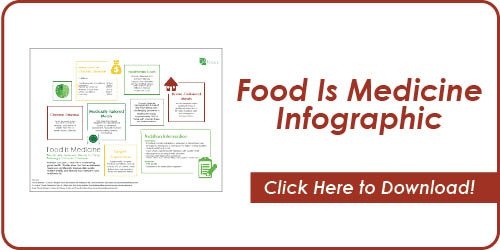
Many homebound older adults do not receive adequate balanced meals, which are essential for managing chronic conditions such as diabetes and are vital for disease prevention. Unfortunately, proper nutrition and diet sometimes take a backseat to other steps in disease management. The body needs to receive the right balance of calories, vitamins, minerals, enzymes, fats, and proteins from food to function well. Food as medicine is not a new concept, but a good diet should be taken seriously and be a top goal to help ensure a better quality of life.
Good Nutrition can Reduce Medical CostsIt is well known that diets too high in sugar, salt, and saturated fats lead to poorer health. In addition, most of these diets also lack the fiber, vitamins, and minerals essential for healthy physiological functions. A weakened immune system, bone loss, muscle weakness, anemia, balance issues, fatigue, and confusion can result from nutritional deficiencies.
A better food plan can prevent problems before they begin and reduce symptoms of chronic ailments. Better nutrition can improve cholesterol, improve blood pressure, bone strength, and joint health, and diminish other problems you might experience with age. When you eat a better, balanced diet, your physician may be able to lower your dosage of certain medications, which can save money.
There is much evidence that using food as medicine can reduce healthcare costs. Healthy home-delivered meals are a convenient option for ensuring better nutrition. One way to ensure adults are getting the proper meal for their condition is to provide access to medically- tailored meals. These meals can take the guesswork out of meal planning and eliminate the stress of searching for healthy, easy meals at the grocery store.
Finding Meals to Meet Special Dietary Needs
Food plays an essential role in controlling certain diseases, such as diabetes. Eating the right foods and the right amount of foods helps keep blood glucose levels as stable as possible. In addition, a diet rich in nutrients and low in sugar and bad fats promotes a healthy weight and helps prevent or treat other diseases common to diabetics, such as heart disease.
For anyone who has mobility problems or difficulty cooking, having healthy home-delivered meals is easier than maintaining a balanced diet on your own. You will be more likely to stick to the meal plan prescribed by your doctor and resist reaching for unhealthy supermarket convenience foods.
The Importance of Nutrition Post-Surgery
The concept of food as medicine is evident in light of healing after an operation. After surgery, the body needs extra calories, vitamins, and minerals to promote wound healing and boost the immune system. Without sufficient protein and other nutrients can delay your post-surgery recovery, or you might experience extra complications, such as infections.
Treating food as medicine is one of the best things during the recovery period.
However, many post-surgery patients don't get the proper nutrition once they leave the hospital. Many adults experience fatigue, limited mobility, and lessened appetite. Cooking healthy meals may be difficult for those returning home from the hospital. Providing home-delivered meals is a way to fill this nutritional deficit and offer comfort and peace of mind by eliminating worry about getting a proper diet.
Good nutrition fuels the body with the necessary ingredients to fight illness and increase overall well-being. A healthy diet should always be a part of an older adult's care plan.
Download our Food is Medicine infographic to learn more.










